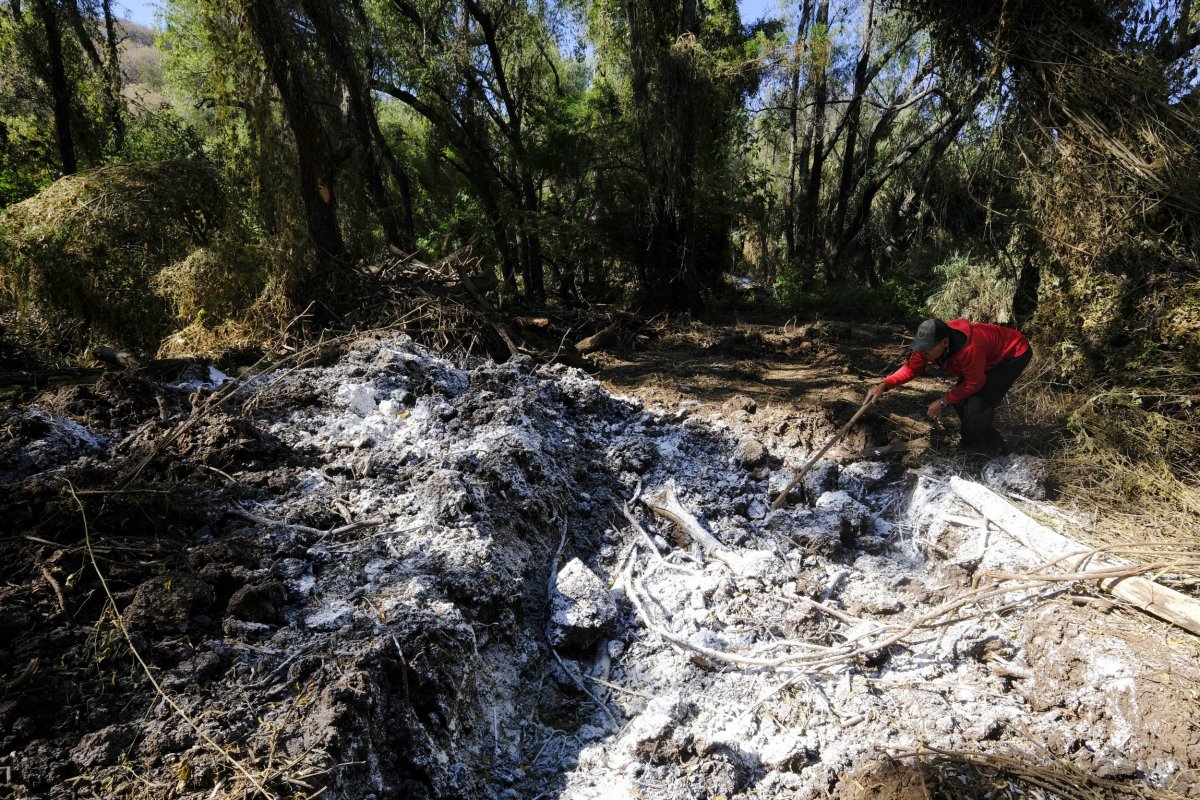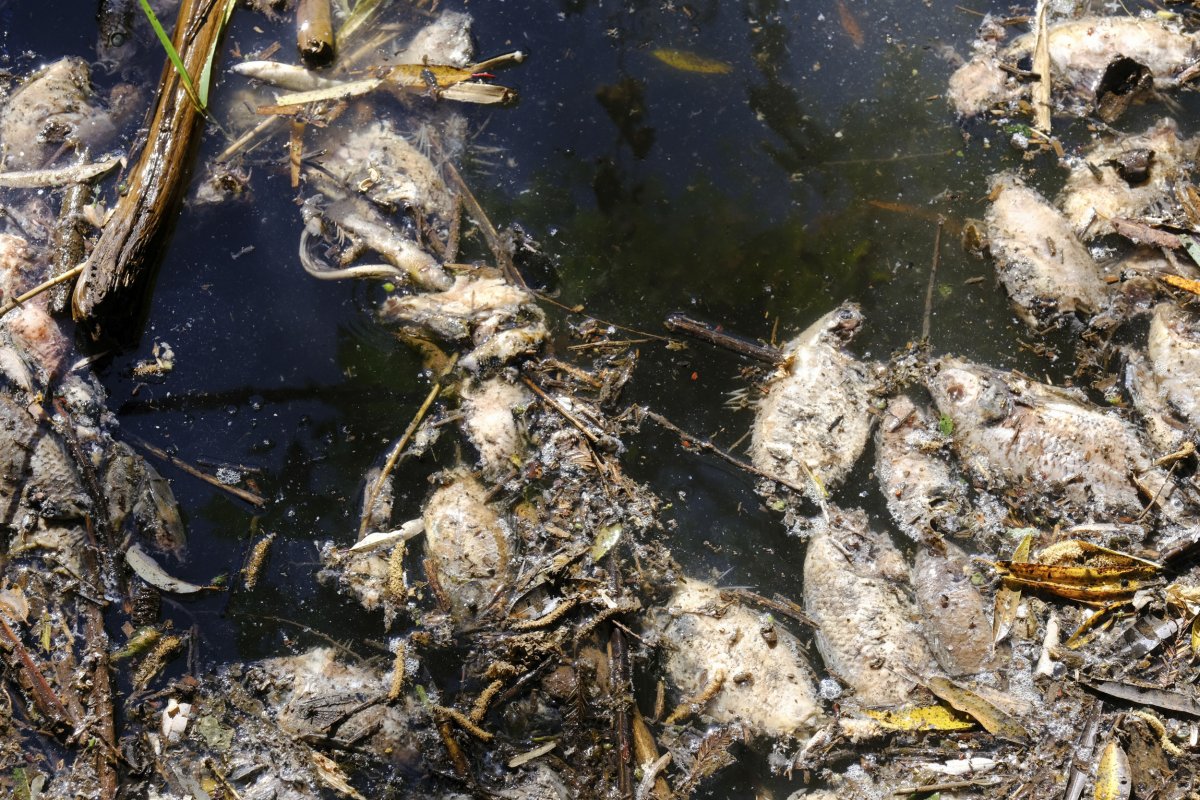The residents of Ayotlan, Mexico fear that their water supply has been contaminated after tens of thousands of fish were poisoned.
The mass deaths were allegedly caused by a tequila plant spill and resulted in 60 to 80 tons of dead fish being removed from the Las Animas creek. Millions of liters of the residue vinasse spilled into the creek, which is part of the San Onofre reservoir. According to the study "Utilization of vinasses as soil amendment: consequences and perspectives," vinasse can be defined as a "residual liquid generated after the production of beverages." Around 40 percent of the state of Jalisco's land is used to make tequila.
"The damage is irreparable and serious," said Ayotlan Mayor Rodolfo Hernández, who blames the Altos Residual Water Treatment plant for allowing the spill to happen and for not cleaning it up quickly enough. However, some don't think that the spill was isolated.
"The majority of tequila producers in all Jalisco and I believe in all of Mexico seek licenses so their vinasse can be put in the ground, in supposedly controlled land," said researcher Aldo Castañeda Villanueva, "but the truth is that many what they do is nothing more than cool it, allow it to settle and then dump it in rivers, reservoirs, the sea."

When Jesús Solís noticed the waters of the reservoir where he had spent his entire life beginning to darken and a rotten odor taking hold, he was overcome with fear. Within weeks those initial concerns were confirmed as tens of thousands of dead fish floated to the surface, apparent victims of a spill of tequila distilling waste into a western Mexico water source.
The 44-year-old fisherman watched for days as the fish he had helped raise and that he relied on for income went belly up along the shores of the reservoir.
Castañeda Villanueva, a professor and researcher specializing in water management at the University of Guadalajara, said "it could take years" until the small reservoir is cleaned up. How long it takes to return to its previous state will depend on the weather, prevention of additional spills and how much rain it will take to dilute the contamination.
He said polluting spills of tequila waste were common, but seldom made headlines. He recalled a 2011 case in the Tuxcacuesco river that led to a massive fish die-off. A student thesis at the University of Guadalajara determined that vinasse from distillers and sewage had flowed from the Tonaya river into the Tuxcacuesco.
Rather than harvesting their fish, Solís and the other fishermen of his cooperative spent the last days of November scooping them up with an excavator on loan from the city. Tilapia, mojarra, carp and little silvery charales were buried in pits with lime to combat the potent stench of rotting fish.
"It was a really difficult moment to see all of our savings, life, going into those pits," said Solís, recalling how since he was 8 years old he started fishing with his father. "I felt so sad then, so powerless, so much anger." Now he worries about what his family will do without their only source of income.
Mauricio Bando, another fisherman, is just hanging on because he took some of his earnings to open a small shop. Now selling snacks and essentials allows him to keep his wife and four kids fed.
"This doesn't give me much because it's small, but at least I survive," said the 43-year-old.
The October spill put his father and brother out of work too. "Our life completely changed." His 74-year-old father now sells cups of coffee around town from a thermos, while his mother and brother harvest corn.
The state environmental agency, territorial development office, state water commission and environmental prosecutor's office said this month they would regularly monitor the reservoir and stream's water to determine what could aid in its cleanup. They also opened investigations to determine responsibility for the spill.
Flores, the state official, said the damage was not irreparable. He said the tequila vinasse affects oxygen levels in a body of water leading to fish kills.
In coming days, the state will bring in equipment to remove weeds in the water that can also reduce oxygen levels, Flores said. The reservoir's water is also being studied to determine whether it is safe for crop irrigation.
The investigation into the spill is still in its early stages, but some state authorities and Ayotlan residents blame a company that treats waste from the area's tequila-producing industry. The plant was closed at the end of September after an inspection revealed that one of its lagoons holding vinasse had a rupture in one of its walls, Flores said.
Carlos López de la Cruz, head of sustainability projects for the Tequila Regulating Council, said the responsible party for the pollution at the reservoir "is not a tequila (distilling) company." He said the plant supposedly at fault had a permit from authorities to treat the waste.
He said the industry is investing in treatment plants and ways to compost vinasse.
The Associated Press contributed to this report.

Uncommon Knowledge
Newsweek is committed to challenging conventional wisdom and finding connections in the search for common ground.
Newsweek is committed to challenging conventional wisdom and finding connections in the search for common ground.
About the writer
To read how Newsweek uses AI as a newsroom tool, Click here.






